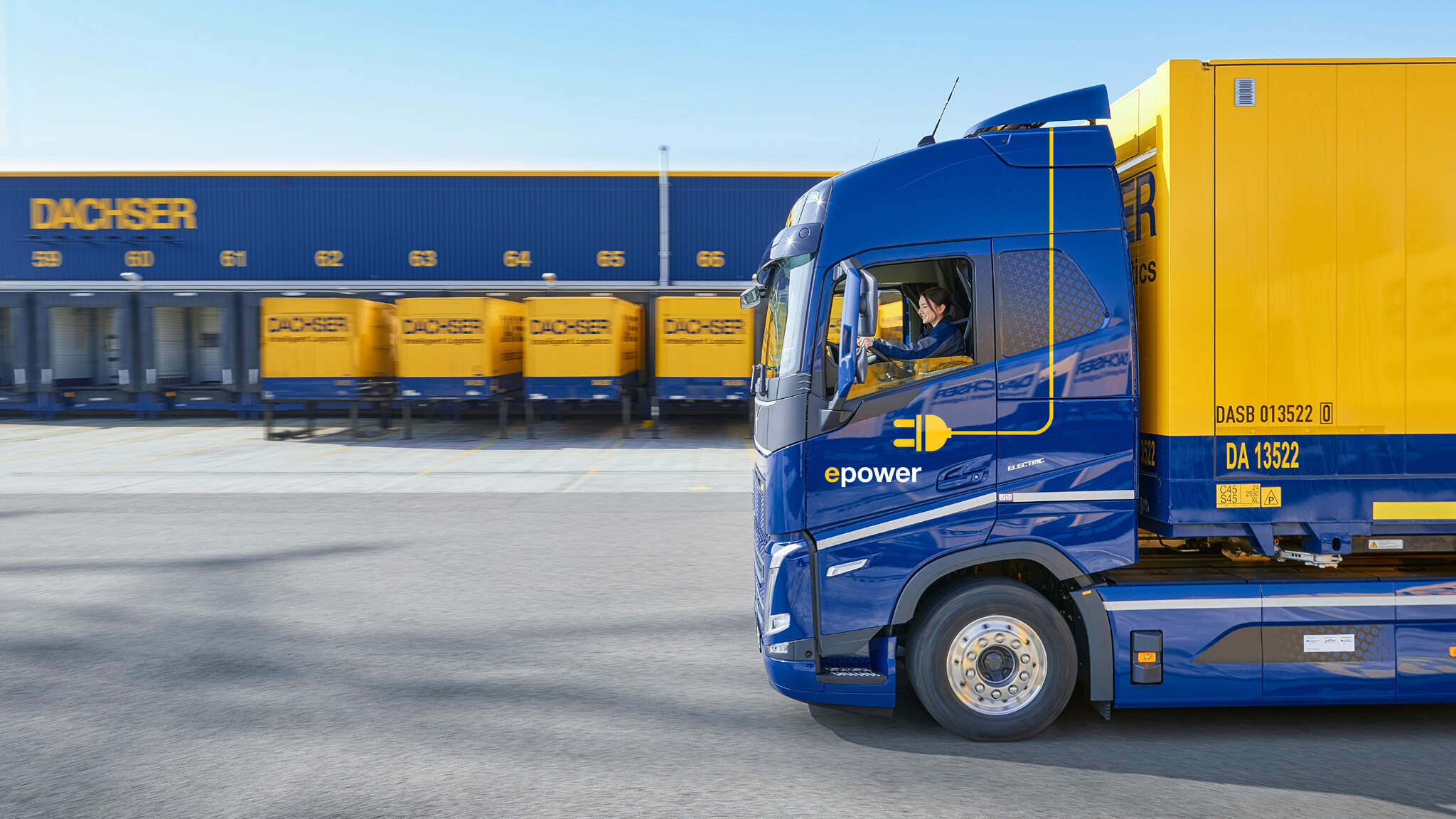DACHSER grows through acquisitions
Group revenue increased by 13 percent in 2024. Record investments totaling around EUR 490 million. Almost EUR 400 million in additional investments planned for 2025. Contract logistics grew by almost 720,000 additional pallet spaces.

Business development would have been more dynamic, but there was a lack of growth impetus from Germany and Europe: “High costs, weak industrial production, and a decline in personal consumption have also had an impact on our business. Moreover, the many crises we face around the world today have been a constant stress test for our customers, and hence also for us,” says Burkhard Eling, DACHSER CEO.

In the past, we’ve emerged stronger and more competitive from crises by following this countercyclical business policy. That will happen again this time around.
Burkhard Eling, DACHSER CEODACHSER’s workforce grew in 2024 by more than 3,300 people to a total of approximately 37,300. The number of locations increased by 56 to 433 worldwide. This also reflects the previous year’s acquisitions in Italy, Northern Europe, Germany, and Austria. The joint venture in Japan, which was launched in 2024, has also been included for the first time.
Business development in detail
DACHSER’s Road Logistics business field—which comprises the transport and warehousing of industrial and consumer goods (European Logistics) and food (Food Logistics)—increased its revenue by 10.9 percent to EUR 6.4 billion in 2024.
The European Logistics business line increased its revenue by 8.1 percent to around EUR 4.8 billion. The number of shipments handled rose by 6.5 percent and tonnage by 2.8 percent. Developments at DACHSER’s European business units were driven by high cost pressure in key industries, growing price sensitivity among customers, and intensified competition due to weak demand for transport and warehousing. “The fact that we were able to grow not only through acquisitions, but also organically in a stagnating market, illustrates the trust our customers place in the high reliability and quality of our network,” Eling says.
The Food Logistics business line has taken on a new European dimension thanks to the integration of Müller in 2023 and of Frigoscandia and Brummer in 2024. Revenue increased by exactly 20 percent to some EUR 1.7 billion, shipments grew by 14.3 percent to approximately 12.4 million, and tonnage rose by 31.5 percent to some 13.9 million metric tons. Eling says: “We’ve acquired companies that have successfully opened up business areas beyond fresh food logistics, that address additional customer segments and markets in Europe, and not least that have significant truck fleets of their own. All of this is part of our new strategic market positioning for DACHSER Food Logistics.”
Revenue in the Air & Sea Logistics business field rose by exactly 22 percent to around EUR 1.6 billion in 2024. Here, DACHSER benefited mainly from short-term special developments that caused freight rates in air and sea freight to rise. These include the crisis with capacity bottlenecks on the Red Sea and the e-commerce business between China and Europe.
Contract logistics, or the combination of transport, warehousing, and customer-specific value-added services, also played an important role in DACHSER’s growth strategy in 2024. Expansion investments together with the capacity of the acquired companies increased the number of pallet spaces by around 720,000 to a total of 3.8 million. DACHSER customers can now take advantage of warehouse services at 190 locations worldwide.
The fact that we were able to grow not only through acquisitions, but also organically in a stagnating market, illustrates the trust our customers place in the high reliability and quality of our network.
Burkhard ElingAgainst this backdrop, it’s important for DACHSER to achieve growth outside Europe. “We will increasingly focus our attention on strengthening our presence in the Americas and Asia and connecting these markets with our unique competitive advantage: our European groupage network. Because the broader our global footprint, the greater our resilience,” Eling says.
